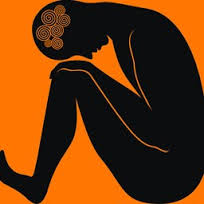Fear and Shame

The core idea here however, is that these two emotions, which motivate controlling behavior, are not about the person who is being “controlled.” No, these emotions are about the controller. I often say in my group (and in my book) that poor behavior in someone with BPD (or anyone in fact) is “not about you” (the recipient of the behavior) or, after rephrasing it: “it’s all about his/her feelings” One of the misunderstandings of that attitude in some of my readers is that some people read that and think “When is it about MY feelings?” That was never the intention of this approach. In fact, the idea was intended to be a way of elucidating the motivation of the behaviors to which Non-BPs object. You see, in my experience, the behaviors of a person with BPD (or anyone emotional) can be explained as being motivated by poorly regulated emotions. The behaviors serve a function which is to halt the negative and overpowering emotional states. Fear and shame are very painful emotions and any person will do anything to halt them (anything to stop the pain). So, while the behaviors seem to be directed at you (like my daughter’s boyfriends controlling behavior seems to be directed at her), in reality the function of the behaviors is to halt the pain. If the fear and shame were not present, the behaviors would cease to exist. That is why I encourage people to act on the emotions directly, rather than on the behaviors directly. This is possible through the application of emotional skills both within one’s own mind and within the context of the relationship.



4 Comments
Wayne
I have read your e-book “when Hope its not enough” in certain aspects it has been helpful. Reading your latest
post you touched on one aspect and that is the issue of control. How do you in a practical way deal with a BPD in your life who tries to control you and demands their way on the things they say the MUST have or else? Brief example: My BPD wife has for years demanded we move to another state to be closer to her family (a family she will not get along with if she would see them on a regular basis) she has repeatly threaten to divorce and take the kids if I don’t comply) what are practical ways to deal with that? How does her “shame come into the picture?”
Bon Dobbs
Wayne,
Interesting comment. With BPD, emotional context is much more important than actual content. Your wife was feeling poorly emotionally. She thought that moving to another state would “fix” those feelings. So, you comply, move to another state and she’s still feels bad. Then, it is something else and something else and something else. The problem here is not the physical location of your wife or the car or the house or whatever she is currently harping about that you MUST do. The problem is twofold: 1) your wife feels bad emotionally (if the negative emotions were to go away, the need for whatever also would go away) and 2) your wife has developed an external locus of emotional validation, meaning, she can’t self-validate or self-soothe. She is constantly looking to the environment (and to you) to make her feel all better. Unfortunately for her (and you) is that the external changes in her life (and yours) make no improvement to her internal emotional states. Her problem is not solved by moving to a new location. Right?
That is why I have recommended (in my book, email support, email list and blog) that Non-BPs work on the real problem (the negative emotions) rather than getting caught up in the content of the request. It is about PROCESS not PRODUCT. It is about teaching the person with BPD to process the negative emotions more efficiently, although ultimately, she is going to have to solve her own problems. That is why I recommend emotional skills training (which is essentially what my book is about). If you deal with the cause of the distress (which are the negative emotions), then you never have the behaviors.
Shame comes into the picture with the idea of “if only…” That is, “if only we lived in X state, I’d be happy (and not feel like a broken, shameful person all the time).” Unfortunately, the “if only” is quickly followed by another “if only” when the first one fails to make her feel better.
Wayne
Bon;
Thanks for insightful information. I have one of your books, I am just trying to learn how to deal with her “emotions” or feelings especially when it is masked by her abrasive behaviors.
Bon Dobbs
It takes time. And practice. In “When Hope is Not Enough” (which is the book that I know you have), I talk about the evolution of thinking in the Non-BP – the evolution that reflects my own experience and that of many of my list members. This evolution (for me) went like this:
WTF? (if she loves me why would she treat me this way)
What about me? (I feel bad, mad and I am suffering. When will MY feelings matter)
It’s not about me (My feelings and behaviors don’t really enter into the equation of her decision making. That is: it’s not my fault, even if she says it is)
It’s all about her (everything she does is about her and her feelings)
It’s all about her feelings (everything she does is motivated by her negative emotional states and she will do anything to stop the pain, regardless of me)
It is a hard road to go through. It takes time and understanding. Remember to focus on emotions and not on behaviors. When she does something effective, reinforce it. Good luck!
Bon